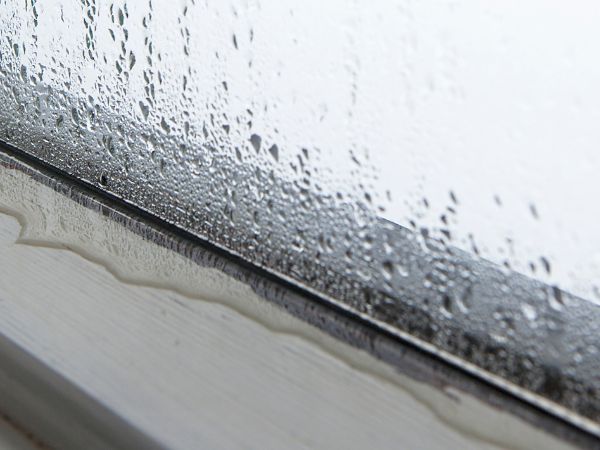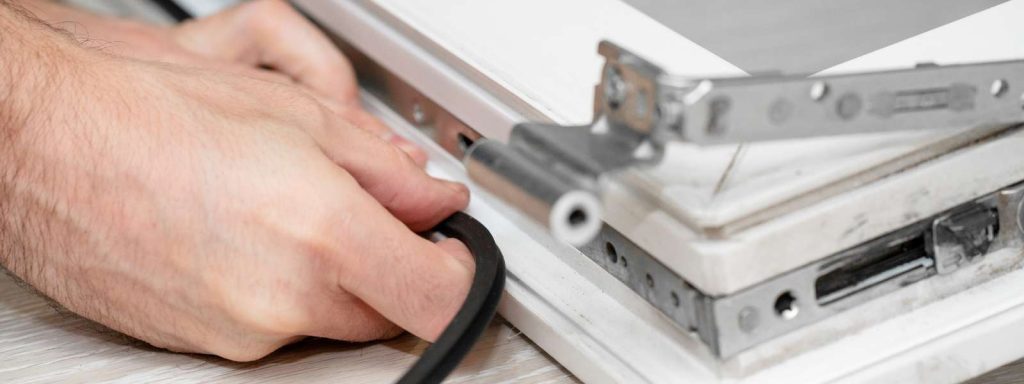High Humidity Levels
The UK’s climate is characterised by relatively high humidity levels, especially in coastal regions. This elevated humidity can contribute significantly to the formation of window condensation. When warm, moist indoor air encounters the cooler surface of a window, it can lead to condensation. This phenomenon is more pronounced during the colder months when indoor heating systems are in use.
Temperature Variations
The UK experiences a wide range of temperatures throughout the year. During the winter, outdoor temperatures can drop significantly. As a result, windows tend to cool down, and when warm indoor air comes into contact with these cooler surfaces, moisture can condense on the glass, leading to condensation issues.
Ventilation Challenges
Proper ventilation is essential to combat window condensation. However, the UK’s often inclement weather conditions can discourage people from keeping windows open for extended periods. This reluctance to ventilate can trap moisture indoors, exacerbating condensation problems.
Double Glazing
Many homes in the UK are equipped with double-glazed windows, which offer better insulation compared to single-glazed ones. Nevertheless, even double-glazed windows can experience condensation if their seals are compromised. Weather-related factors, such as wind-driven rain, can contribute to seal failures, resulting in increased condensation.
Mitigation Strategies
To mitigate the impact of weather on window condensation, homeowners can take several proactive steps. Adequate ventilation, even in adverse weather, is crucial. The use of extractor fans in areas like kitchens and bathrooms can help remove excess moisture. Additionally, sealing any gaps and cracks around windows and doors can prevent drafts and reduce condensation. Lastly, investing in energy-efficient windows with high-quality seals can further decrease the likelihood of condensation.
Effective Ventilation Techniques
When it comes to ventilation, the UK’s weather patterns require homeowners to be creative. While it might be challenging to keep windows open during a downpour, it’s essential to allow fresh air to circulate. Consider using trickle vents, which allow a controlled amount of ventilation without exposing your home to the full force of the elements. Additionally, mechanical ventilation systems with heat recovery can help maintain indoor air quality without relying on open windows.
Heating Considerations
To combat condensation during cold weather, homeowners can optimise their heating systems. Maintaining a consistent, moderate indoor temperature can reduce the temperature differential between indoor and outdoor environments, making it less likely for condensation to form on windows. Efficient, programmable thermostats can help achieve this.
Insulating Measures
Addressing insulation in your home is another vital step. Ensuring that your walls and roof are adequately insulated can help maintain stable indoor temperatures and reduce the likelihood of condensation on windows. Moreover, insulating curtains or blinds can provide an additional layer of thermal protection.
Long-term Benefits
It’s important to view condensation mitigation measures as long-term investments in your home’s comfort and energy efficiency. By taking proactive steps to combat window condensation, you not only improve the quality of your living environment but also reduce the risk of mould growth, which can be detrimental to both your health and the structural integrity of your home.
The UK’s weather, characterised by high humidity levels, temperature variations, and ventilation challenges, can significantly impact window condensation. However, with proper maintenance and the implementation of the right measures, homeowners can minimise condensation issues and maintain a comfortable indoor environment throughout the year.
To explore effective solutions and take proactive steps to combat condensation, homeowners can consider consulting Ratio Seven, a trusted partner in enhancing home comfort and energy efficiency.
By addressing condensation challenges head-on, you can enjoy a more comfortable and healthier living space in any weather conditions.





